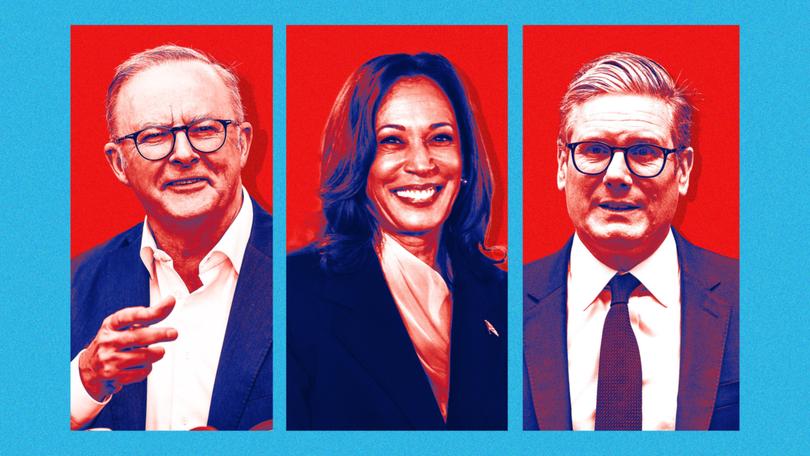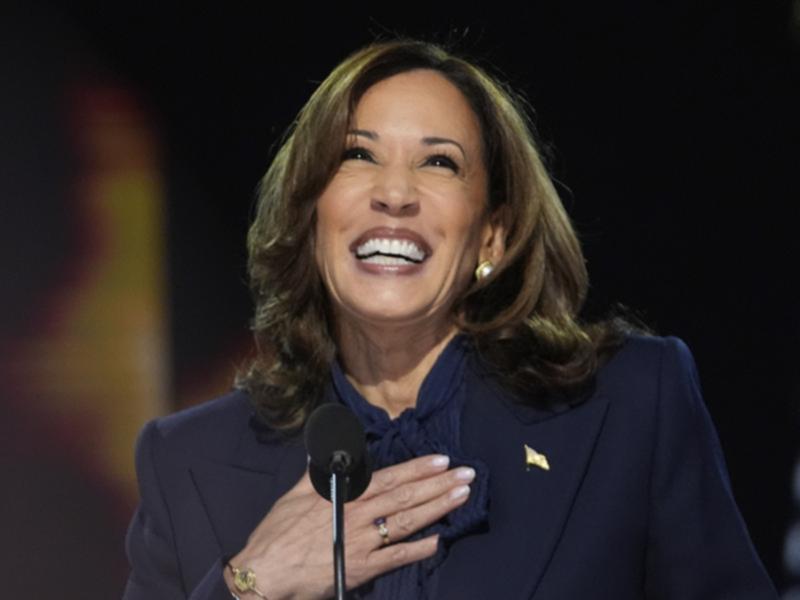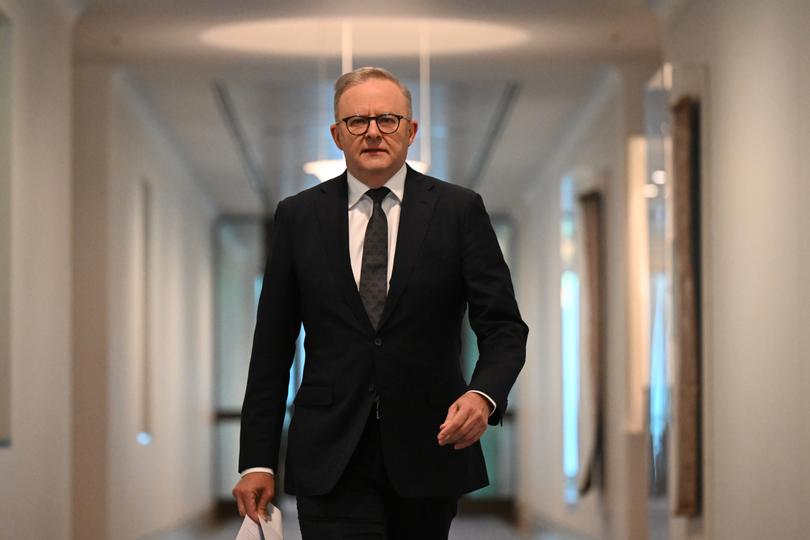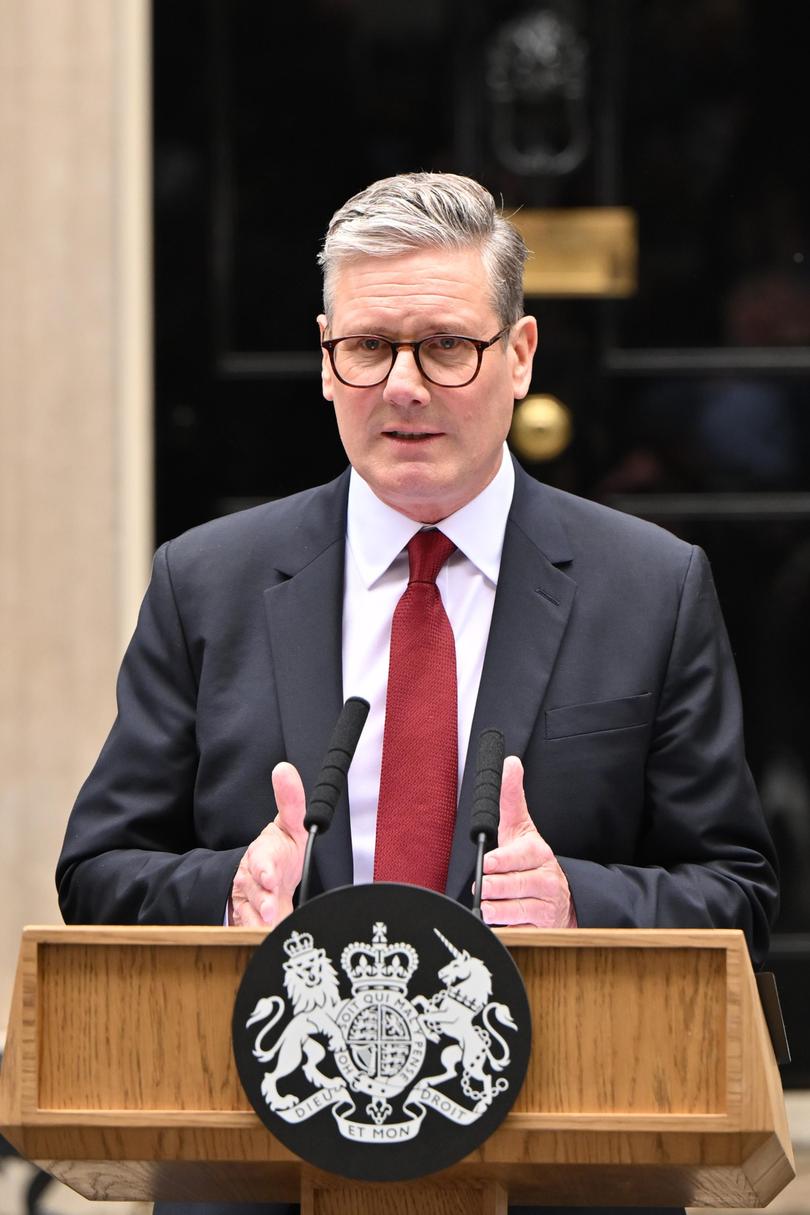No policy, no worries: Harris, Starmer and Albanese master new campaign technique
There’s a consistent trend in the way the centre-left is securing government – and it appears to be working, for now.

There’s a consistent trend in the way the centre-left is securing government – campaign on a vibe and evade as much policy discussion as possible.
This method is currently being deployed by Vice President Kamala Harris who hasn’t held a single media interview or press conference since being elevated to replace US President Joe Biden.
With her distinctive laugh, photogenic smile and natural warmth, the self-fashioned harbinger of joy wants to enter the Oval Office by Making America Smile Again.
Sign up to The Nightly's newsletters.
Get the first look at the digital newspaper, curated daily stories and breaking headlines delivered to your inbox.
By continuing you agree to our Terms and Privacy Policy.Joy was a key reason she chose the amiable Tim Walz as her running mate.

The canniness of the Democrats’ new catch cry “We’re not going back,” is not just that it is a forward-looking positive signal, but that it also seeks to cast the Trump Administration as the incumbent.
The chaos and decline in global admiration for the United States during the Trump years is what Harris is attempting to run against, and not her and Joe Biden’s subsequent four years in the White House.
It’s a neat tactic that would have been unavailable to Biden and further vindicates the last-minute switch to his VP, just as Australia’s Liberals felt when they dumped Malcolm Turnbull for Scott Morrison, who went on to win the supposedly unwinnable election in 2019.
But with little in the way of policy confirmed, Harris hopes to have it both ways.
She enjoys the opaqueness of incumbency by hoping voters will assume that her policy positions will be largely Bidenesque, or more of the same.
Yet she can remain blank enough for those who do want change in key areas, such as US support for Israel’s war in Gaza, to project their ideals onto her without her ever having to commit to precise points of difference.
And it might just work.
This small target approach has proved a winner at least twice in Australia and the United Kingdom where ageing, orderless centre-right governments had well and truly exceeded their mandates and exhausted the public’s patience for their antics and incompetence.
Prime Minister Anthony Albanese didn’t so much win in 2022, he scraped through after a dire campaign and only just avoided minority government, an outcome that appears likely for his second term.

UK Prime Minister Keir Starmer on the other hand, won decisively, with a 174-seat majority.
Not being the other guy, when the other guy is that bad, is a winner.
But this method comes with a price. Both leaders won on the back of their parties’ lowest-ever vote shares.
And for Sir Keir, who campaigned on a single-word slogan – ‘Change’ – he is unlikely to experience any sort of honeymoon.
He called a back-to-work press conference in the Downing Street Garden on Wednesday to warn the public that “frankly, things will get worse before they get better.”
“There is a budget coming in October and it’s going to be painful,” he said, standing behind a lectern bearing a new slogan – ‘Fixing the Foundations’ – written in white text on a black background.
“Things are worse than we ever imagined.”

His decision to speak in the garden was deliberate and symbolic as it was the venue chosen by Boris Johnson’s former chief of staff Dominic Cummings to hold his infamous press conference when he provided the laughable excuse of wanting to test his eyesight as his reason for breaking lockdown rules.
“This garden, this building are now back in your service,” Starmer said, bizarrely.
Pretending that Number 10’s private garden is some kind of new political battleground was lame and yet another indication that Sir Keir looks more than a little out of touch.
Take for instance the cronyism scandals that have already dominated the first weeks of Sir Keir’s term.
He became tetchy and refused to explain why a personal donor, the Labour
peer Lord Waheed Alli was given a security pass to Downing Street where he subsequently arranged a post-election garden party for other donors.
Sir Keir also refused to explain why he had overturned the appointment of the four-star General Gwyn Jenkins as the new National Security Adviser.
These stories followed the revelation surrounding another Labour donor, Ian Corfield, who spent time working in Australian banks Bankwest and the Commonwealth Bank.
He had donated to Chancellor Rachel Reeves and was appointed to a Treasury position, from which he has now resigned and will perform unpaid.
When confronted about the ethics and standards surrounding these appointments and clearances, Starmer hit out at the Conservatives.
“I’m not really going to take lectures on this from the people who dragged our country so far down in the last few years,” Sir Keir said.
“These allegations and accusations are coming from the very people that dragged our country down in the first place.”
He has a point. The Tories were no angels when it came to appointing political mates to civil service positions.
But Starmer promised change, a vibe, an idea that things would improve.
Now it turns out, the real change that he brings is pain.
The public will have already priced in, to a degree, the tax rises that are obviously on the way – just as the Conservatives warned.
But the by-product of the public expecting and accepting the inevitability of higher taxes means they know Labour was dishonest about its true intentions before the election and their patience for the hand-wringing, woe-is-me spiel will be thin.
It is also going to be made that much more difficult to sell given one of Labour’s first acts was to grant pay raises to public sector workers worth £9 billion.
Making the tough decisions early on is politics 101. Any smart government should spend their political capital as early as it can.
But political leaders who coast through on vague feels only to be seen to be stacking the system in the favour of their mates should expect a reckoning.

